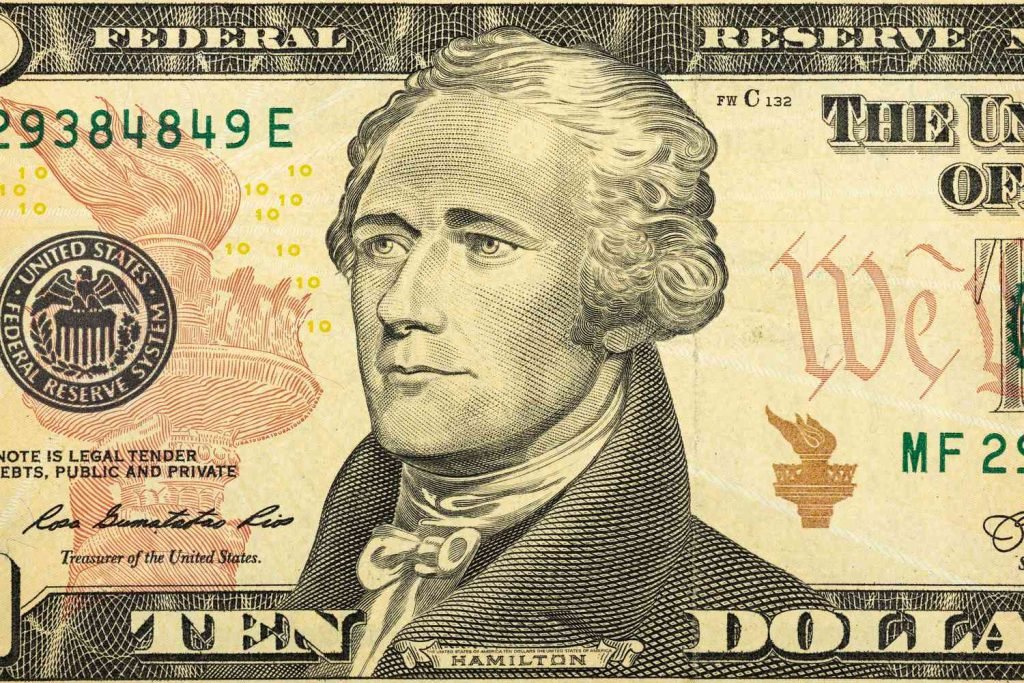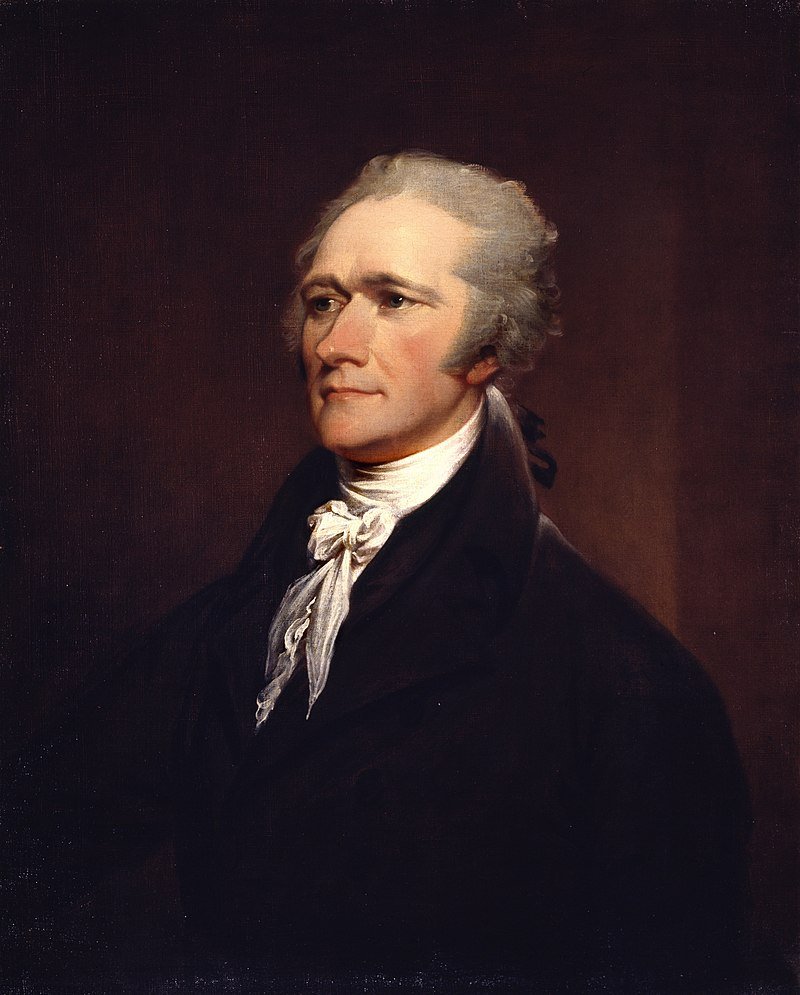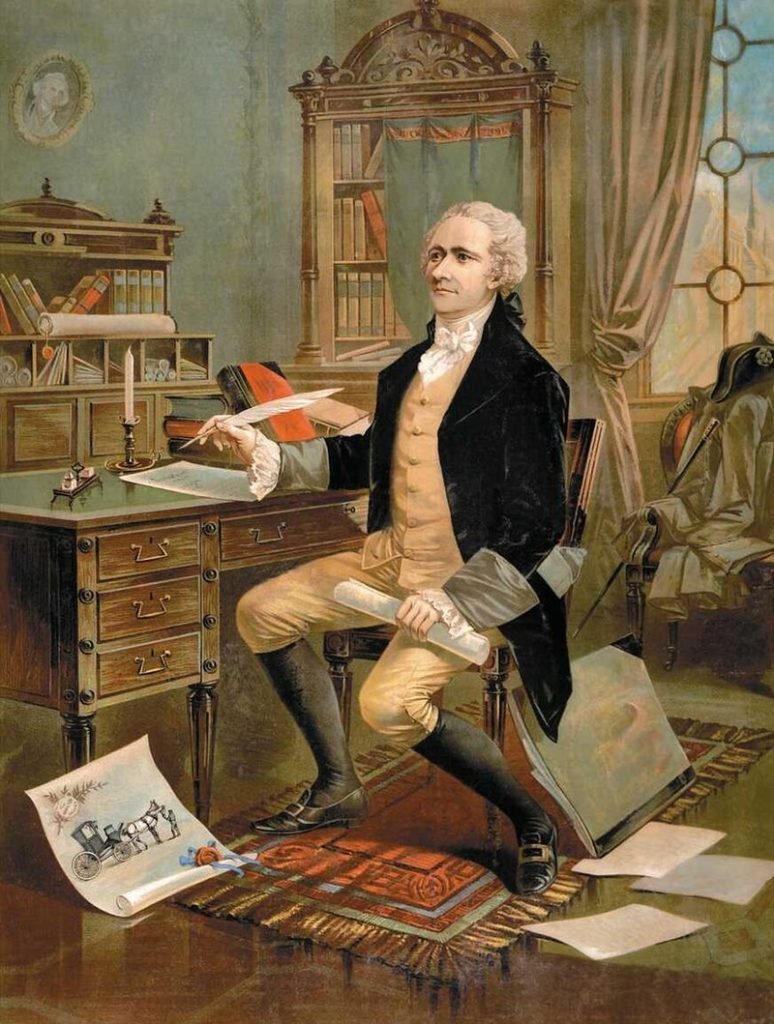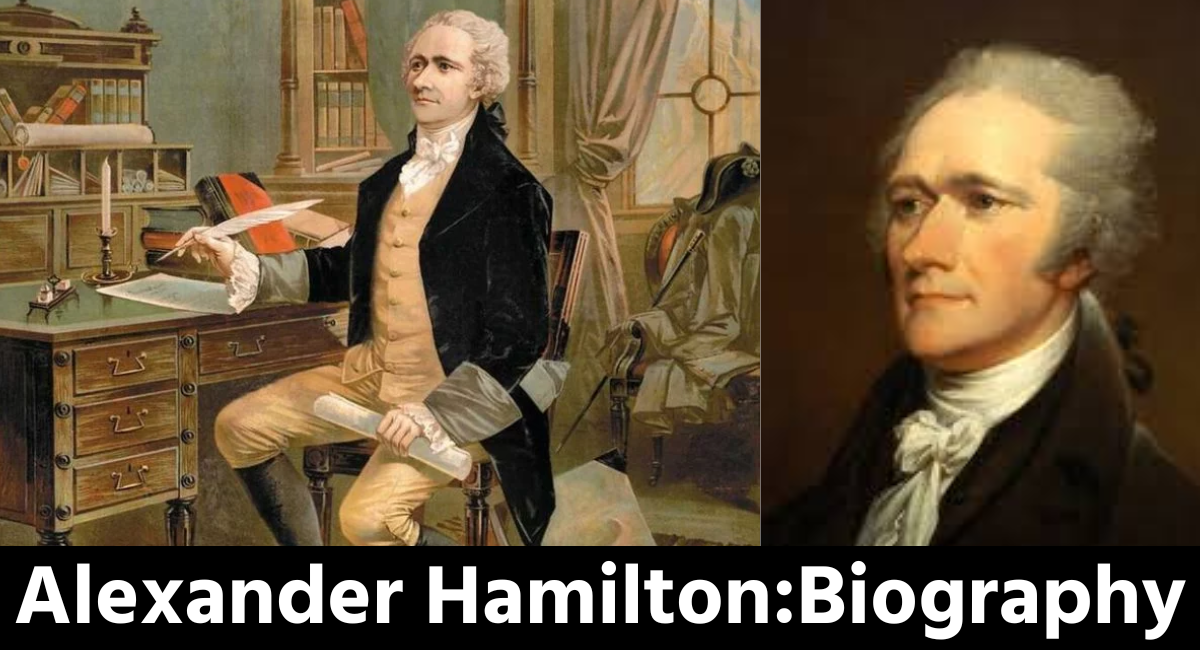Alexander Hamilton (January 11, 1755, or 1757– July 12, 1804) was an American military officer, statesman, and Founding Father who served as the first secretary of the treasury from 1789 to 1795 during George Washington’s presidency.
Alexander Hamilton Biography
Alexander Hamilton Born out of wedlock in Charlestown, Nevis, Hamilton was orphaned as a child and taken in by a prosperous merchant. He pursued his education in New York City where, despite his young age, he was a prolific and widely read pamphleteer advocating for the American revolutionary cause, though an anonymous one.
He then served as an artillery officer in the American Revolutionary War, where he saw military action against the British in the New York and New Jersey campaign, served for years as an aide to General George Washington, and helped secure American victory at the climactic Siege of Yorktown. After the Revolutionary War, Hamilton served as a delegate from New York to the Congress of the Confederation in Philadelphia.
Alexander Hamilton He resigned to practice law and founded the Bank of New York. In 1786, Hamilton led the Annapolis Convention to replace the Articles of Confederation with Alexander Hamilton the Constitution of the United States, which he helped ratify by writing 51 of the 85 installments of The Federalist Papers.
Alexander Hamilton As a trusted member of President Washington’s first cabinet, Hamilton served as the first U.S. Secretary of the Treasury. He envisioned a central government led by an energetic president, a strong national defense, and an industrial economy. He successfully argued that the implied powers of the Constitution provided the legal authority to fund the national debt, assume the states’ debts, and create the First Bank of the United States, which was funded by a tariff on imports and a whiskey tax.
He opposed American entanglement with the succession of unstable French Revolutionary governments and advocated in support of the Jay Treaty under which the U.S. resumed friendly trade relations with the British Empire. He also persuaded Congress to establish the Revenue Cutter Service. Hamilton’s views became the basis for the Federalist Party, which was opposed by the Democratic-Republican Party led by Thomas Jefferson. Hamilton and other Federalists supported the Haitian Revolution, and Hamilton helped draft the constitution of Haiti.
Alexander Hamilton Facts
- Born : January 11, 1755 or 1757Charlestown, Colony of Nevis, British Leeward Islands
- Died : July 12, 1804 (aged 47 or 49)New York City, U.S.
- Cause of death : Gunshot wound
- Resting : place Trinity Church Cemetery
- Nationality : American
- Spouse: Elizabeth Schuylerm. 1780
- Children: PhilipAngelicaAlexanderJamesJohnWilliamElizaPhilip
Alexander Hamilton Early life and education
Hamilton was born and spent the early part of his childhood in Charlestown, the capital of the island of Nevis in the British Leeward Islands. Hamilton and his older brother, James Jr., were born out of wedlock to Rachel Lavien (née Faucette),a married woman of half-British and half-French Huguenot descent,and James A. Hamilton, a Scotsman who was the fourth son of Alexander Hamilton, the laird of Grange, Ayrshire.

Alexander Hamilton Rachel Lavien was married on Saint Croix.In 1750, Lavien left her husband and first son before travelling to Saint Kitts, where she met James Hamilton. Hamilton and Lavien moved together to Nevis, her birthplace, where she had inherited a seaside lot in town from her father. While their mother was living, Alexander and James Jr. received individual tutoring and classes in a private school led by a Jewish headmistress. Alexander supplemented his education with a family library of 34 books.
James Hamilton later abandoned Rachel Lavien and their two sons, allegedly to “spar[e a charge of bigamy…after finding out that her first husband intend[ed] to divorce her under Danish law on grounds of adultery and desertion.” Lavien then moved with her two children to Saint Croix, where she supported them by managing a small store in Christiansted. Lavien contracted yellow fever and died on February 19, 1768, leaving Hamilton orphaned. Lavien’s death may have had a severe emotional impact on Hamilton, even by the standards of an 18th-century childhood. In probate court, Lavien’s “first husband seized her estate” and obtained the few valuables that she had owned, including some household silver.Alexander Hamilton Many items were auctioned off, but a friend purchased the family’s books and returned them to Hamilton.
Alexander Hamilton The brothers were briefly taken in by their cousin Peter Lytton. However, Lytton took his own life in July 1769, leaving his property to his mistress and their son, and the Hamilton brothers were subsequently separated. James Jr. apprenticed with a local carpenter, while Alexander was given a home by Thomas Stevens, a merchant from Nevis.
Hamilton became a clerk at Beekman and Cruger, a local import-export firm that traded with the Province of New York and New England. Despite being only a teenager, Hamilton proved capable enough as a trader to be left in charge of the firm for five months in 1771 while the owner was at sea. He remained an avid reader, and later developed an interest in writing and a life outside Saint Kitts, where he lived. He wrote a detailed letter to his father regarding a hurricane that devastated Christiansted on August 30, 1772. The Presbyterian Reverend Hugh Knox, a tutor and mentor to Hamilton, submitted the letter for publication in the Royal Danish-American Gazette. Biographer Ron Chernow found the letter astounding because “for all its bombastic excesses, it does seem wondrous [that a] self-educated clerk could write with such verve and gusto” and that a teenage boy produced an apocalyptic “fire-and-brimstone sermon” viewing the hurricane as a “divine rebuke to human vanity and pomposity.”The essay impressed community leaders, who collected a fund to send Hamilton to the North American colonies for his education.
Alexander Hamilton – Revolutionary War (1775–1782)
Alexander Hamilton In 1775, after the first engagement of American patriot troops with the British at Lexington and Concord, Hamilton and other King’s College students joined aAlexander Hamilton New York volunteer militia company called the Corsicans, whose name reflected the Corsican Republic that was suppressed six years earlier and young American patriots regarded as a model to be emulated.

Hamilton drilled with the company before classes in the graveyard of nearby St. Paul’s Chapel. He studied military history and tactics on his own and was soon recommended for promotion.Under fire from HMS Asia, he led his newly renamed unit, “Hearts of Oak”, Alexander Hamilton with support from Hercules Mulligan and the Sons of Liberty on a successful raid for British cannons in the Battery; the successful capture of the battery resulted in the unit being designated an artillery company.
Alexander Hamilton Through his connections with influential New York patriots, including Alexander McDougall and John Jay, Hamilton raised the New York Provincial Company of Artillery of 60 men in 1776, and was elected captain.The company took part in the campaign of 1776 in and around New York City; as rearguard of the Continental Army’s retreat up Manhattan, serving at the Battle of Harlem Heights shortly after, and at the Battle of White Plains a month later. At the Battle of Trenton, the company was stationed at the high point of Trenton at the intersection of present-day Warren and Broad streets to keep the Hessians pinned in their Trenton barracks.
Alexander Hamilton – George Washington’s staff
hamilton was invited to become an aide to Continental Army general William Alexander, Lord Stirling, and another general, perhaps Nathanael Greene or Alexander McDougall. He declined these invitations, believing his best chance for improving his station in life was glory on the Revolutionary War’s battlefields. Hamilton eventually received an invitation he felt he Alexander Hamilton could not refuse: to serve as Washington’s aide with the rank of lieutenant colonel.Alexander Hamilton Washington believed that “Aides de camp are persons in whom entire confidence must be placed and it requires men of abilities to execute the duties with propriety and dispatch.”

Hamilton served four years as Washington’s chief staff aide. He handled letters to the Continental Congress, state governors, and the most powerful generals of the Continental Army. He drafted many of Washington’s orders and letters under Washington’s direction, and he eventually issued orders on Washington’s behalf over his own signature.Hamilton was involved in a wide variety of high-level duties, including intelligence, Alexander Hamilton diplomacy, and negotiation with senior army officers as Washington’s emissary.

